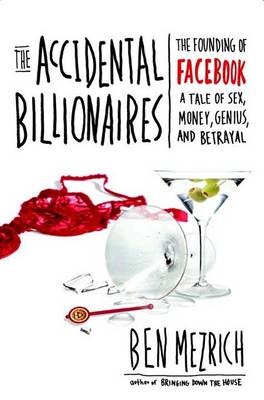Reviewed by Ashley on
When reading other reviews, one of the biggest critiques I found was that the book doesn’t just deal with just facts. Yes it’s based on real life events, but it’s certainly more dramatic and elaborate than any facts we have available. In the author’s note, the author admits to making up dialogue and filling in his own content where there were gaps in his research. Naturally, this upsets some reviewers. For example:
“Mezrich writes the book in the style of dramatic narrative which apparently means ‘when I don’t have facts, I’ll just make ‘em up and when the story gets slow, I’ll fabricate a sex scene.’”
I, on the other hand, like fiction. I wasn’t looking for a purely factual informational piece. And I do like sex scenes! (But to be honest, there are no actual sex scenes in the book. There are only a few moments where it’s implied that someone went off and had sex.)
I think it’s important for those reviewers to understand that Facebook was a college creation. It was created by college students in dorm rooms and some of those students did like to party. So yes, there will be parties, sex, girls, drinking, and throwing around words like “fuck” and “shit.” I don’t see that as “dramatic narrative” — I see it as accurately describing the setting and environment that Facebook was created in.
So if you just want to read about a piece of college life and entrepreneurship and enjoy a story, the book is a good and interesting read. If you’re looking for a serious piece of non-fiction and just want the facts about Facebook as a company, try a Wikipedia article instead.
The one thing I didn’t really like was how the author switched from writing in past tense — as if the events definitely happened — to saying things like, “We can imagine that this is what happened next” or “We can imagine this is how it happened” or “We can imagine Mark doing that.” It kind of pulled me out of the immersion of the book; it’s like I went from reading a story to reading about someone guessing at what happened. I have no problem with the author making assumptions, exaggerations, or even making up dialogue, but I prefer it to be written as actual events. I think the author’s note was enough to cover his ass and make it clear that not everything happened exactly the way he wrote it.
At the end of the day, it was a good read, an enjoyable book — but not amazing.
Reading updates
- Started reading
- 14 April, 2012: Finished reading
- 14 April, 2012: Reviewed
